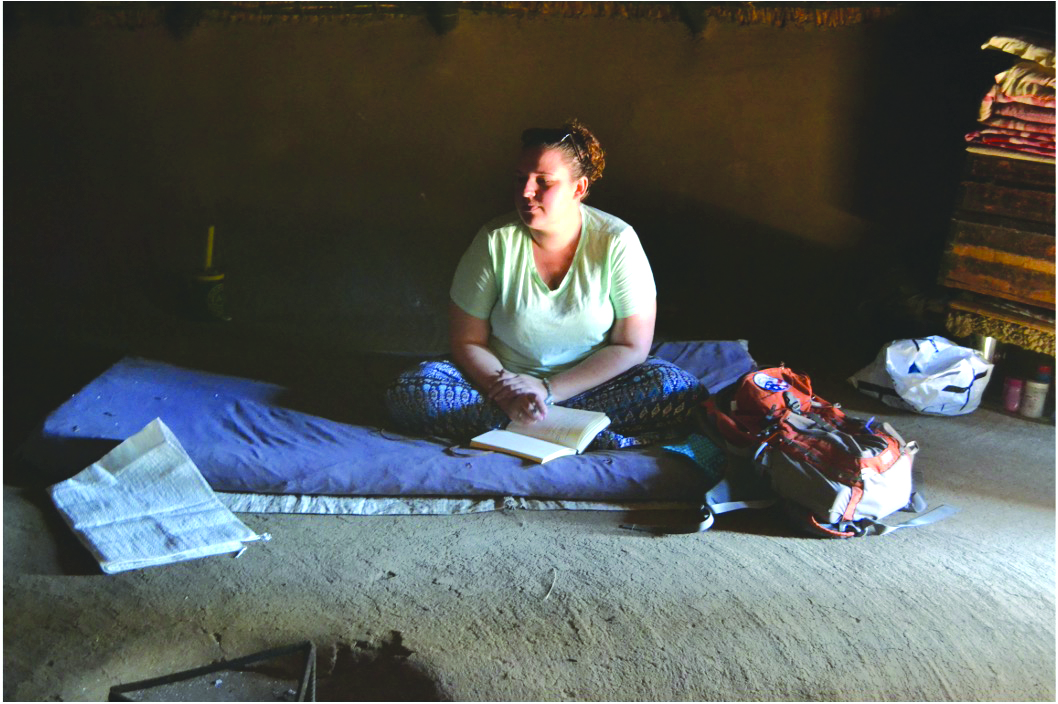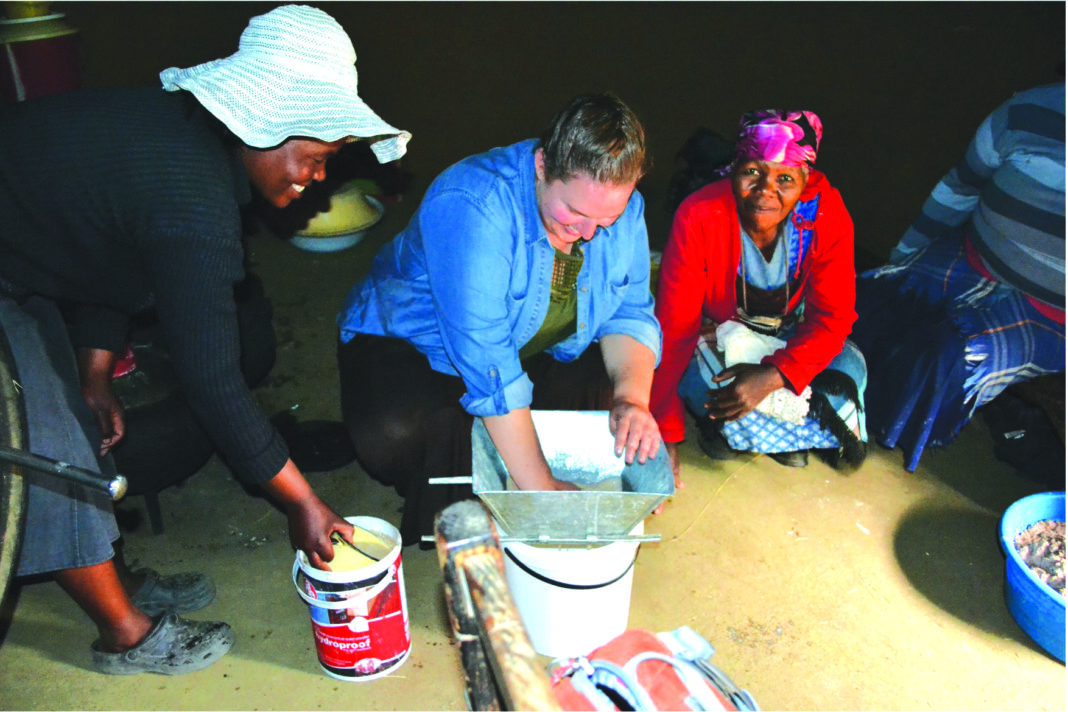In this interview, we sit down with Marry Beth Knipper, a scholar and researcher whose unique dual expertise in medicine and cultural anthropology is shedding new light on maternal health in Lesotho. With a deep commitment to understanding the intersection of health, culture, and community, Marry’s work focuses on the complex and evolving ways in which Basotho women navigate the risks of pregnancy and early infancy, shaped by both traditional practices and modern biomedical interventions. Her ethnographic research, conducted in the eastern highlands of Lesotho, explores the enduring legacies of epidemics like HIV/AIDS and their profound impact on how these communities approach perinatal care. In this conversation, Marry reflects on her journey into medical anthropology, the cultural nuances of maternal healthcare in Lesotho, and the importance of integrating local knowledge into global health efforts.
Newsday: What inspired you to pursue a dual degree in medicine and cultural anthropology, and how these disciplines intersect in your work?
Marry Beth Knipper: Nearly 17 years ago, early in my undergraduate education, I was lucky to stumble upon an opportunity to join a medical aid team that was providing primary healthcare to rural communities, outside Pisac, Peru. Witnessing the structural inequalities of health within those Andean communities radically altered my career trajectory. I became fascinated by “medical anthropology” – that is, by understanding how the health and wellness of individuals, communities, and environments are affected by local events and histories (like the emergence of viral epidemics); by interrelationships between various species and actors; by social norms and political institutions; and by broader cultural forces (like globalisation, Western feminisms, or capitalism). Ultimately, that and subsequent experiences working abroad in “global health” solidified my desire to merge anthropological research with my passion for clinical medicine.
Newsday: Your project examines Basotho women’s concepts of risk and protection during the perinatal period. What led you to focus on this particular aspect of maternal health in Lesotho?
Marry Beth Knipper: As in many cultures and places, bo-Mme understand pregnancy and early infancy as incredibly vulnerable moments in the human life-course. Early life is inherently precarious. As women would often remind me, “Ngoana joalaka ke metsi.” I was often struck by this hypervigilance and attunement to perinatal risk and “exposures.” In highlands communities, modern-day mothers still speak of age-old threats to their newborns: muti, witchcraft, impure persons, jealous neighbours… But unlike their own mothers, they also engage biomedical language and metaphors to understand their experiences; they are incredibly knowledgeable about CD4+ cell counts and childhood immunisation schedules; and they wistfully remember the ways that childhood and the village community were different – somehow safer for children – long ago. In this work, I explore these transforming experiences of motherhood and perinatal risk as (partial, but not exclusive) by-products of viral epidemics (HIV, HPV, COVID), and the global health responses that were erected to prevent their spread.
Newsday: How do you define the “afterlife” of epidemics like HIV/AIDS in the context of Lesotho, and what are some of the enduring impacts you’ve observed?
Marry Beth Knipper: This is an incredibly astute question! It’s one that I ultimately hope to fully answer in my doctoral dissertation. Ultimately, I am interested in the lives that emerge in the wake of the epidemic… What are the ways that health events, like HIV or COVID, continue to live on with us into the future? How do they transform the way that we relate to other kinds of bodies and environments? How does growing up in a perpetual state of “epidemiological emergency” alter the way that Basotho mothers imagine perinatal risk and engage with diverse forms of perinatal care? For me, the “afterlife” of the epidemic is not only a question of population health metrics; it is also one of bodily experience and orientation. It is a question best explored by delving into the everyday life-worlds of Basotho mothers, who are increasingly forced to navigate “new” viral threats and social changes, alongside age-old concerns about witchcraft, muti, and social well-being. As I move forward in analysing the data gathered over the past year of ethnographic fieldwork, I’m looking at historical changes in social networks and material methods of care. I’m interested in women’s decision-making around everything from vaccines to muti to “prayer water.” I’m examining how women make meaning out of perinatal deaths and illnesses.

Newsday: Based on your findings, how can global health interventions be tailored to better respect and integrate local cultural practices in maternal and child healthcare?
Marry Beth Knipper: As an anthropologist and future physician, I believe in the power of storytelling and education. Ultimately, I hope that this ethnographic work sheds light on the everyday experiences of mothers in highlands Basotho communities. Among global health professionals and policymakers, I hope that it generates richer conversations about the (occasionally unintended) consequences of Maternal and Child Health (MCH) and epidemiological interventions. I believe it is important for Lesotho to continue investing in the education of native, Sesotho-speaking, Basotho physicians and health policy makers. High-quality medical education, ideally combined with native cultural literacy (Basotho physicians treating Basotho patients), will be central to the ability of healthcare providers to understand and meet the needs of Basotho patients. It could be as simple as a Sesotho-English mistranslation in the clinic. It could be as complex as the ability to understand your patient’s cultural norms or belief system because you were raised in it yourself. Ultimately, culturally competent medical care is the key to reducing healthcare disparities and ensuring high-quality maternal and child healthcare in Lesotho.
Newsday: How have the communities in the eastern highlands of Lesotho responded to your research, and in what ways have their perspectives influenced your study?
Marry Beth Knipper: I cannot say enough about the incredible hospitality of every Basotho community I have ever had the privilege to live or work in. Even from my early days as a Peace Corps Volunteer, the warmth and kindness of batho ba Basotho always made Lesotho feel like “home” to me – in fact, this past year my husband and two young sons were also able to move with me to Lesotho! With regards to the research study, the communities I worked with were always very supportive. On an individual level, my experiences have been similarly positive… I often found bo-Mme incredibly willing to teach and share their lives with me. It is a profound honour; an act of trust that I take very seriously as a researcher. Of course, people also each approached my questions and presence with their own histories and life experiences – of encounters with medical professionals, Americans, and lekhooa. I respect that immensely. If they were willing to share – even from a place of grief, mistrust, or anger – that is incredibly valuable and valid. Those experiences are all part of a broader story of maternal life and health in Lesotho.
Newsday: What are some of the challenges you’ve encountered during your ethnographic fieldwork in Lesotho, and how have you addressed them?
Marry Beth Knipper: I would say that the most significant challenges of ethnographic fieldwork were logistical in nature. My husband, Jacob, and our two young sons (ages 2 and 4 years) were thankfully able to join me in Lesotho for the year. Moving our entire family from America to Lesotho was obviously an adventure for us! In addition, my research field site in the eastern highlands of Botha-Bothe District was incredibly remote. Ultimately, we decided that our family would split our time between Maseru and the highlands, which meant that I spent a lot of time driving mountainous dirt roads, juggling family and work. Throughout it all, however, I relied immensely on my Basotho friends and family for support. I could never have completed this research without the daily help and endless support of my long-time research assistant and friend, Thabang Sekitla. Whenever I travelled to the highlands without my family, I left them in the care of my Basotho family in Maseru. I am so grateful for the wealth of the community that made this year of work possible.
Newsday: In your view, how have past global health interventions during epidemics shaped current healthcare practices and perceptions among Basotho women?
Marry Beth Knipper: In my experience, Basotho women are incredibly knowledgeable about and invested in neonatal and pediatric health issues. Overall, bo-Mme are very aware of infectious and other threats to their children. In clinical encounters, they are often engaged and agentic participants. This sense of responsibility and deep commitment to the health of children is absolutely a testament to the centrality and importance of children within Basotho society. However, in the wake of 30 years of Prevention-of-Mother-to-Child-Transmission (PMTCT) intervention to curb the spread of HIV, the forms of care solicited by mothers, and the meanings they attach to them, have understandably altered. In the research study, Basotho mothers ubiquitously expressed a desire to act in the best interest of their children’s health. This attunement to perinatal risk often led them to draw upon a diverse landscape of medical systems and practitioners. As an anthropologist, I try to avoid imagining these medical systems as discreet or bounded entities. Traditional Basotho medicine is not counter to clinical biomedicine. They don’t necessarily contradict or threaten one another. Rather I imagine them as interrelated and co-evolving systems of knowledge and thought. They share space in a community, mutually building upon one another. Basotho mothers understand that, but sometimes biomedical clinicians may struggle to see value in all forms of health practice and belief. This bias – which occasionally neglects to recognise the importance and validity of non-biomedical forms of care in Basotho communities – is itself a cultural legacy of Western-influence, biomedical systems of thought, and “evidence-based” medical interventions in Lesotho.
Summary
- In this interview, we sit down with Marry Beth Knipper, a scholar and researcher whose unique dual expertise in medicine and cultural anthropology is shedding new light on maternal health in Lesotho.
- With a deep commitment to understanding the intersection of health, culture, and community, Marry’s work focuses on the complex and evolving ways in which Basotho women navigate the risks of pregnancy and early infancy, shaped by both traditional practices and modern biomedical interventions.
- I am interested in the lives that emerge in the wake of the epidemic… What are the ways that health events, like HIV or COVID, continue to live on with us into the future.

Your Trusted Source for News and Insights in Lesotho!
At Newsday Media, we are passionate about delivering accurate, timely, and engaging news and multimedia content to our diverse audience. Founded with the vision of revolutionizing the media landscape in Lesotho, we have grown into a leading hybrid media company that blends traditional journalism with innovative digital platforms.









